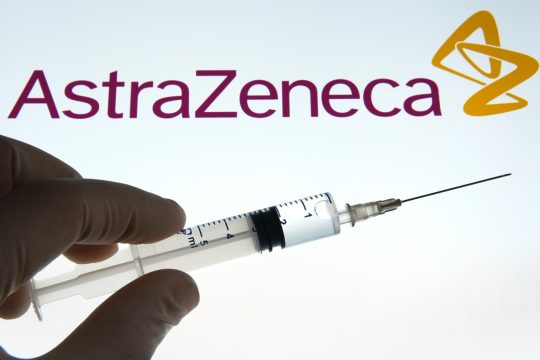Advertisment
IASLC 2011 Report – Emerging immunotherapies in the management of lung cancer
by Dr Sunil Upadhyay – Advanced non-small cell carcinoma of the lung represents one of the major unmet needs for an effective and prolonged survival outcome. The majority of these patients frequently present to the multi-disciplinary team at an advanced stage with little chance of radical management options and extremely poor prognosis. Treatment with currently available chemotherapy, molecular agents and radiotherapy have been found to result in median overall survival of 15-18 months in the majority of the studies for stage IIIB and IV disease. Co-morbidities and toxicities from these therapies are the other concerns, particularly in patients with poor performance status and the elderly biological age.
Use of immunotherapeutic agents to stimulate or restore the ability of the immune system to fight cancer by inducing, enhancing or suppressing an immune response has been an area of interest for decades but with limited success. Cancer immunotherapy agents target the immune activity against a disease specific antigen either by increasing the immune cell recognition of the target or by reducing the disease related immune suppression. These agents have low toxicity hence are suitable for use in a wide variety of patients. The uses of preventive cancer vaccines targeting viruses know to cause cervical and liver cancers are examples of real breakthroughs. Unlike preventive cancer vaccines, therapeutic cancer vaccines are designed to be used after the development of the disease. These agents stimulate the immune system to be able to recognise cancer cells by exposure to tumour specific antigens and then target the cancer cells, stop their growth, prevent metastases and eventual relapse.
A therapeutic vaccine can be used as adjuvant therapy following primary radical treatment with surgery, radiotherapy with or without chemotherapy to reduce the relapse and improve cure in early or locally advanced NSCLC patients. The therapeutic vaccine STIMUVAX stimulates the body’s immune system to reject cancer cells and prevent tumour growth, metastasis or recurrence. Stimuvax is based primarily around the mucin-1 (MUC-1) glycoprotein, a tumour antigen discovered by Cancer Research UK and found on almost all cancer cells including NSCLC. MUC-1 is involved in the formation of mucin to keeps the epithelial cell surface moist and may also act as an immunosuppression substance. Abnormal glycosolated MUC-1 has been found to be over expressed on many tumour cells compared to normal epithelial tissue. A vaccine based on abnormally glycosolated MUC-1 like Stimuvax (BLP25 liposomal vaccine) has been found to show encouraging activity in Phase II trials for stage IIIB lung cancer. Therefore, a large Phase III trial called START (Stimulated Targeted Antigenic Response to NSCLC) is being setup to recruit 1300 patients with stage III disease from around the world. Data from a Japanese study looking at the efficacy and feasibility of MUC-1-targeting dendritic cell-based vaccine immunotherapy in 43 patients yielded an overall disease control rate of 61.5% with minimal toxicities. (Abstract MO21.09).
RCAS 1 (Receptor binding cancer antigen expressed on SiSO cells) is another membrane protein that is expressed in different types of cancers. It halts the cell cycle and induces apoptosis of the immune system cells within the tumour micro-environment. Therefore, it is possible that this molecule is involved in the mechanism of the tumour cell escape from the immune system surveillance. A study presented at the 14th WCLC confirmed that there is an over-expression of RCAS 1 protein mainly in grade 3 lung cancers and that there is positive correlation between RCAS 1 and ki-67 expression which means that when the ki-67 increases, the expression of RCAS 1 is higher. Therefore, RCAS 1 could be considered as a marker of the tumours aggressiveness (Abstract P2.232 late breaking Abstract suppl).
Ipilimumab, a fully human monoclonal antibody which augments T cell activation by selectively inhibiting T-lymphocyte antigen-4 is one of the few immunotherapies that has shown positive results in treating advanced lung cancers in combination with paclitaxel/carboplatin (PC). The Phase 2 trial results presented by Thomas Lynch at the 2010 Chicago Multidisciplinary Symposium in Thoracic Oncology showed superior PFS when ipilimumab was combined with PC compared to PC alone. Thomas Lynch presented the updated results of the analysis by baseline histology from this trial at WCLC 2011.

Modified Prime Oncology symposium, WCLC 2011
The primary end point of this study was immune related irPFS. Squamous cell carcinoma tumours were found to benefit most with the phased schedule. The AE profile of Ipilimumab was found to be identical in both schedules irrespective of histology. Despite the small sample size, the results are encouraging and warrant further investigation in larger Phase III trials. (Abstract MO21.06).
Active immunization against MAGE-A3 tumour antigen, commonly expressed in many cancers, is also being investigated. MAGE-A3 tumour specific antigens are appealing because they have little crossover with normal tissue antigens. Therefore, MAGE-A3 Antigen-Specific Cancer Immunotherapeutic (ASCI) has been developed and following encouraging Phase II trial outcomes, MAGE-A3 ASCI is currently being investigated in a global Phase III, randomised (2:1) trial called MAGRIT as adjuvant therapy after surgery in NSCLC. The tumour and patient characteristics associated with MAGE-A3 expression results were presented by Joo-Hang Kim from South Korea. The overall rate of MAGE-A3 expression was found to be 33.4%. There were major differences between MAGE-A3 expression in squamous (47.5%) and non-squamous (25.7%) tumours. Other clinical variables had little impact on predicting MAGE-A3 expression. However, among non-squamous tumours, non-Asian race, male sex, and larger tumour size were significant predictors for MAGE-A3 expression. (Abstract MO21.08).





